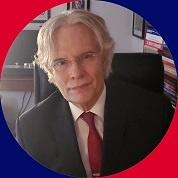 Cubans Rise Up Against Castro’s Communist Regime.
Cubans Rise Up Against Castro’s Communist Regime.
This Sunday, July 11th thousands of Cubans took to the streets in numerous of the Islands cities calling for nothing less than systemic change.
For the over six-decade-old Marxist-Leninist state, this is indeed a most worrisome situation. The nationwide protests have caught many by surprise. For a dictatorship that prides itself on having one of the finest intelligence and repressive networks in the world, this proves that it is still vulnerable. Spontaneity, as Hannah Arendt always believed (correctly so), is one of the greatest fears of a totalitarian regime. One can rest assured that heads within the Castro-Communism apparatus will predictably roll. The most distinctive mark about these massive outpours of societal repudiation was precisely the spontaneous nature of these acts of civic rebellion that sprung out throughout the country, thanks to fissures within the state’s monopolistic media control that technology in the digital age has facilitated.
The chants included “Down with Communism,” “Freedom,” “Fatherland and Life,” “Down with the Dictatorship,” “Viva Free Cuba,” “No More Lies,” “Down with Diáz-Canel,” “Change,” “We Are Not Afraid,” and “Yes We Can.” Some of the Cuban cities where these multitudes voiced publicly their opposition to Cuban communism were Havana, San Antonio de los Baños, Palma Soriano, Guira de Melena, Santiago de Cuba, Alquizar, Cárdenas, San José de las Lajas, Morón, Bauta, and Santa Clara. According to sources of Periódico Cubano, local calculations by eyewitnesses place the numbers at close to 20,000 at most of these sites where the protests took place. It is worth noting that many of these demonstrations concentrated themselves within strategic targets before places with political relevance for the Castro regime.
Two key types of locations that repeatedly witnessed the highest decibels of social discontent and patriotic calls for regime replacement of the protests were in front of numerous Cuban Communist Party headquarters and police stations, both emblematic repressive instruments and symbols of the Marxist dictatorship. Miguel Díaz-Canel, the hand-picked figurative representative of Castro-Communism, made his way quickly accompanied by the regime’s elite political police troops, the Black Berets, to San Antonio de los Baños, the protest ground zero center and addressed the nation.
Remaining in that city for about five minutes but leaving behind the brutal repressive forces to crush the peaceful protesters, Diaz-Canel parroted the usual Castroist diatribe. The current Cuban dictator blamed all of Cuba’s woes on the United States (as usual). Immediately after, he slandered all those marching, by referring to them as “mercenaries,” “lackeys of the United States,” and “counterrevolutionaries.” Díaz-Canel, as part of his regime-formulated response to this challenge to its legitimation claim to power, claimed that “the streets belong to the revolutionaries” and called on “revolutionary Cubans and communists to go out into the streets” and challenge the anti-dictatorship protesters. Since the updated socialist magna carta (2019 Constitution) of the Castro-Communist regime calls upon the population to “defend” socialism by any means necessary, in a state with no rule of law, this is a license to kill for communism. Article 4 reads: “Citizens have the right to combat through any means, including armed combat when other means are not available, against any that intend to topple the political, social, and economic order established by this Constitution.”
The Castro regime as part of his repressive crackdown on this civic and peaceful revolt has logistically cut internet services for the general population in areas of popular demonstrations. Therefore, much of the details will be missing regarding the suppression. The Black Berets immediately in the afternoon began to savagely suppress the demonstration, for example, in San Antonio de los Baños. Tear gas was the least aggressive utensil used. The fact communist Cuba has a major air force base in this city, undoubtedly, makes it logistically important.
In the outskirts of Palma Soriano, elite infantry motorized divisions from Baraguá, home to the Castro regime’s largest military unit of its Eastern Army (Cuba has its Armed Forces divided along into three groups to avoid coordination’s for a coup), have been coordinating positions. Again, the loss of communication with opposition groups inside the Island has made it difficult to ascertain, at this moment, the full magnitude of the Castro government’s suppression effort.
As Arendt astutely forecasted, totalitarian regimes are only successful if they can structurally organize society and political power, along with the dictatorship’s objectives. Spontaneity threatens that ability to predict and control. Cuban communism will not forget this Sunday, July 11th. When people believe that all they have to lose are their chains, when they confront oppression, the oppressors are in trouble. Imponderables are tools of freedom against communism. Cuba is on the right path towards freedom.
©The Cuban American Voice. All rights reserved. Reproduction is prohibited without express permission.
 🖋️Author Julio M. Shiling
🖋️Author Julio M. Shiling
Julio M. Shiling is a political scientist, writer, columnist, lecturer, media commentator, and director of Patria de Martí and The CubanAmerican Voice. He holds a master’s degree in Political Science from Florida International University (FIU) in Miami, Florida. He is a member of The American Political Science Association, The PEN Club (Cuban Writers in Exile Chapter) and the Academy of Cuban History in Exile.
Follow Julio on:
📚Published books 📺In the media 👨🏫 Conferences and Symposiums 🎙️Podcast The Shiling Summary

